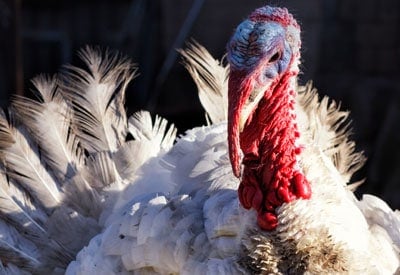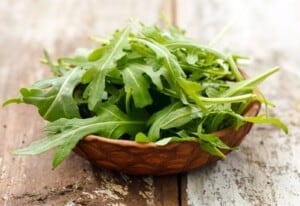“The fairest thing in nature, a flower, still has its roots in earth and manure.” – D. H. Lawrence
Did you know that turkey manure is one hot fertilizer with slightly more nitrogen (PDF) than chicken manure? Though the difference is slight — and actually disputed by the University of Minnesota — one thing’s clear. Turkey manure, like other poultry manure, is a valuable source of phosphorus, potassium, and, yes, nitrogen. It also contains other valuable nutrients and microbes that your plants will appreciate.
If you’re lucky enough to have your own little homestead with a turkey or three trotting about — we’re told they make acceptable country pets and a single male strutting around can be as decorative as a peacock — or live near (but not too near) a source of good organic turkey manure, take advantage. Most likely, it will be available as “litter,” mixed in with sawdust, straw, feed and other components to be swept or shoveled off the coop floor (wear a mask). No matter how your turkey droppings come, you’ll want to compost the manure before using it in gardens.
Like all manures, turkey droppings fresh from the farm may be too hot for your plants. Fresh manure may also contain pathogens. Composting manure — or the manure mixed in with litter — to a temperature of 131 degrees or more, and held there for a couple weeks, will take care of the pathogens. And the composting process will make what nitrogen’s left — and there’ll be plenty — more accessible when it’s worked into your soil. Here’s a testimonial to the power of turkey manure that was posted on the University of British Columbia Botanical Gardens Forum. Sounds like your garden will gobble it up.












